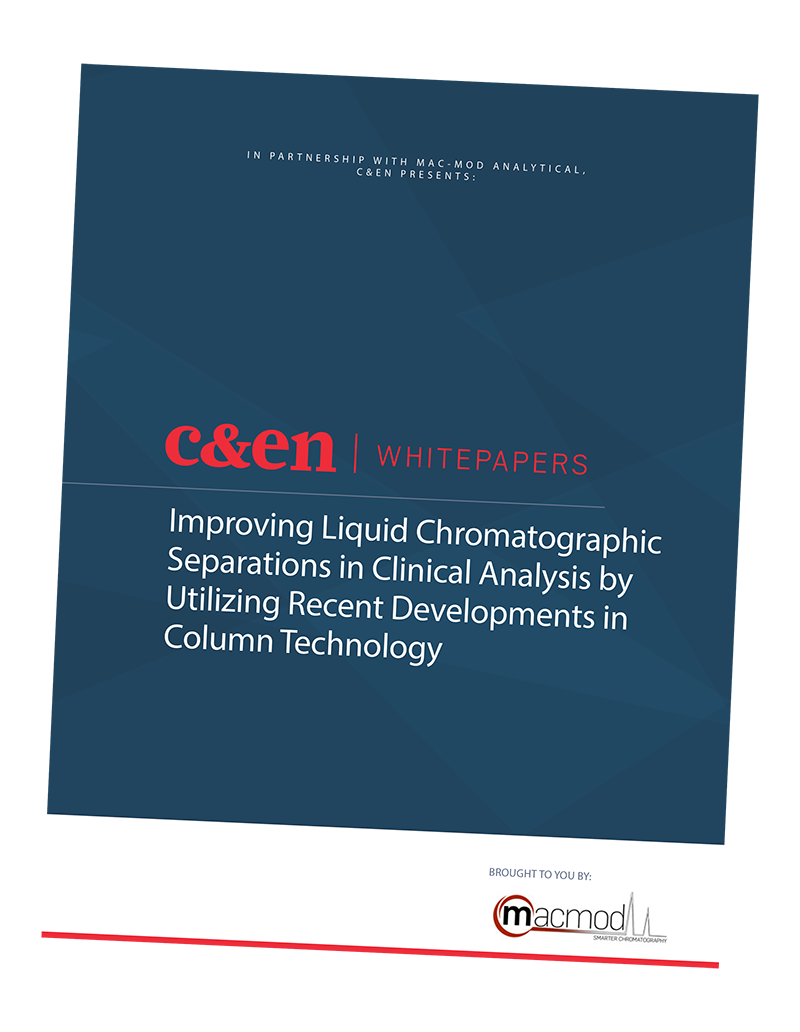
Improving Liquid Chromatographic Separations in Clinical Analysis by Utilizing Recent Developments in Column Technology
Brought to you by Mac-Mod Analytical
Overview
Liquid chromatography (LC) is a powerful technique for the separation, identification, and quantification of target analytes in complex media such as biomatrices. LC offers target assay flexibility, multiple detection modes, and can be highly automated — all of these are ideal features to be applied to the analysis of high sample numbers or for research purposes in the modern clinical laboratory.
With the introduction of ever-more-powerful and easier-to-use mass spectrometry (MS) detectors at an affordable price point, LC-MS has become increasingly influential as a routine, investigative tool for clinical testing, therapeutic/dose monitoring, and the screening of disease states including quantitative and qualitative biomarker profiling.
Key Learning Objective
- Learn how to utilize unique stationary phase chemistries to maximize selectivity in HPLC/UHPLC and LC/MS
- Learn about new stationary phase technology that will improve clinical analyte resolution and lab productivity
- Review examples of using different bonded phases to improve clinical lab separations
Brought to you by:


Please complete the form to download the whitepaper.
Copyright © 2025 American Chemical Society | 1155 Sixteenth Street NW | Washington, DC 20036 | View our Privacy Policy